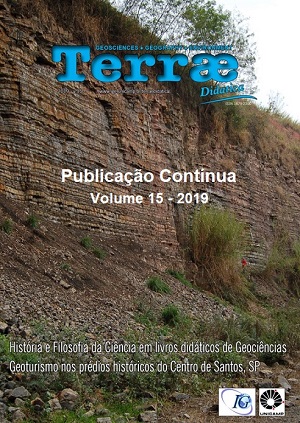Resumo
The International Earth Science Olympiad (IESO) is a relatively new international science olympiad, having begun in 2007. Be-sides the usual written and practical tests, co-operative activities like the International Field Team Investigation (ITFI) and Earth System Project (ESP) are special and exclusive to IESO. Two problems that are unique to Earth Science education are the lack of visibility and the quality of teaching of Earth Science. In recent years, the International Geoscience Education Organisation has brought in sweeping changes in the way IESO testing is done. This paper summarises how IESO has contributed to enhanc-ing the profile and visibility and the quality of earth science education: Through national level entrance test and National Earth Science Olympiad; through publicity regarding the entrance test and related Olympiad activities; through workshops during and between IESO’s; through Mentors and Observers; through the International Team Field Investigation (ITFI) and Earth System Project (ESP); and through hosting IESO. However, efforts have to be made to further increase the impact of IESO on the quali-ty of Earth Science education by several means, including having more countries to participate in IESO.
Referências
International Earth Science Olympiad. (2018). IESO Syllabus. http://www.ieso-info.org/syllabus/.
Shankar, R. (2004a). Some thoughts on the Organisation of the International Earth Science Olympiad. Proc. Seoul Conf. on International Earth Science Olym-piad, Seoul National University, Seoul. Nov. 26-27, 2004:24-29.
Shankar, R. (2004b). Earth Science education in schools: the Indian Scenario. Proc. Seoul Conf. on International Earth Science Olympiad, Seoul National University, Seoul Nov. 26-27, 2004:105-107.
Shankar, R. (2014). 7th International Earth Science Olympiad (IESO), Episodes, 36/4: 292-294.
Shankar, R., Orion, N., King, C., Warrier, A.K., Narahari, A.M., & Swamy, S.G.S. (2017). Teacher training workshops in India – A report. Episodes, 40/1, 90-93.
A Terrae Didatica utiliza a licença do Creative Commons (CC), preservando assim, a integridade dos artigos em ambiente de acesso aberto, em que:
- A publicação se reserva o direito de efetuar, nos originais, alterações de ordem normativa, ortográfica e gramatical, com vistas a manter o padrão culto da língua, respeitando, porém, o estilo dos autores;
- Os originais não serão devolvidos aos autores;
- Os autores mantêm os direitos totais sobre seus trabalhos publicados na Terrae Didatica, ficando sua reimpressão total ou parcial, depósito ou republicação sujeita à indicação de primeira publicação na revista, por meio da licença CC-BY;
- Deve ser consignada a fonte de publicação original;
- As opiniões emitidas pelos autores dos artigos são de sua exclusiva responsabilidade.

